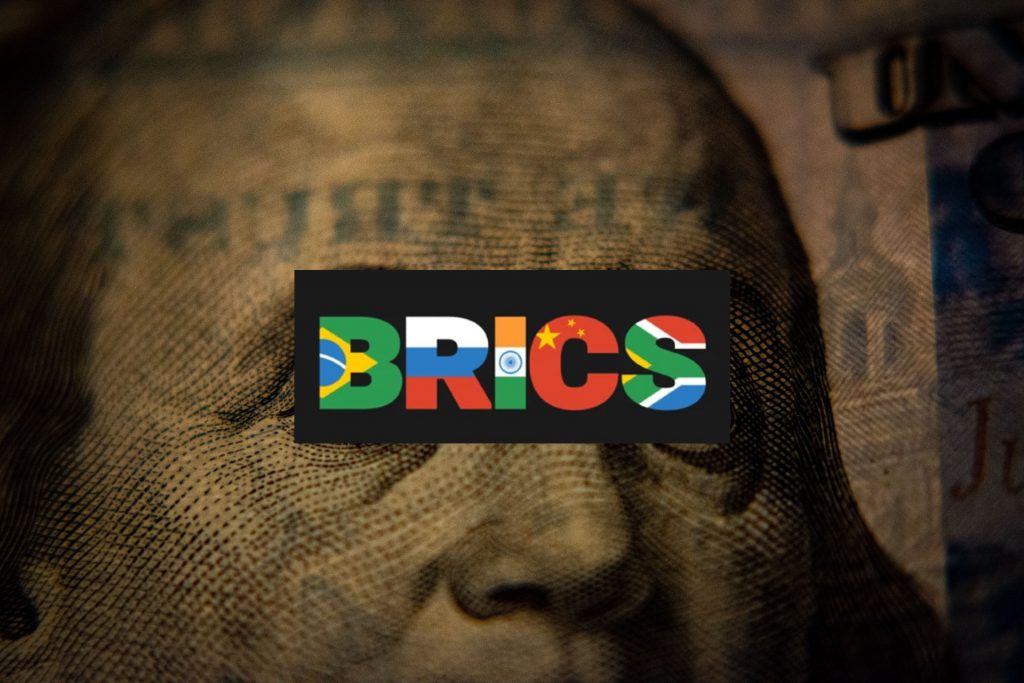The entire globe has been observing the collective efforts of the BRICS nations to undermine the dominance of the US dollar. The de-dollarization initiative initiated by Brazil, Russia, India, China, and South Africa [BRICS] has gained traction as numerous other countries express their support for this endeavor. The alliance hopes to establish a new global BRICS currency in the near future.
Some commentators have raised concerns about how de-dollarization could impact the quality of life in the United States. A few others argue that this initiative is currently “irrevocable.” In a recent interview, Matthew Piepenburg of Matterhorn Asset Management discussed the potential decline of the US dollar.


Piepenburg emphasized that significant global economic powers are actively working to move away from the dominance of the US dollar. This is being done with the aim of diminishing its supremacy. He attributed this shift to the continuously rising interest rates in the US. He said that BRICS nations like China and Russia, have been taking steps to reduce their reliance on the dollar. One of these steps is adopting alternative settlement systems.
Matterhorn Asset Management’s Commercial Director further added,
“So when that dollar gets higher because Powell is raising the rates, that becomes more onerous and painful for the rest of the world and they begin to break ranks. Asia in general, China and Russia in particular are very big rank-breaking nations. And, of course, they’re bringing 41 other countries alongside to have trade settlements outside the US dollar.”
According to reports, a significant number of countries, including Saudi Arabia, Iran, Argentina, the United Arab Emirates, Algeria, Egypt, Bahrain, Indonesia, two undisclosed nations from East Africa, and one from West Africa, have expressed their interest in joining BRICS’ de-dollarization efforts, as well as adopting a new BRICS currency.
Is This Payback Time for the U.S.?
Russia has experienced notable repercussions due to the sanctions imposed by the U.S. during the conflict with Ukraine. Russia has been removed from the Society for Worldwide Interbank Financial Telecommunication [SWIFT] network and was also subject to freezing its foreign exchange [FX] reserves. Taking this into consideration Piepenburg said,
“And so there’s no doubt that the weaponization of the dollar, even the petrodollar comes into this because there’s threats to the petrodollar market and the demand of the petrodollar and the strong dollar. So a strong dollar was a real gut punch for years it became even more of a gut punch when we weaponized that dollar when we took Russia off of the STR and the SWIFT and of course froze its FX reserves.“
No Replacement for the Dollar Yet


Piepenburg emphasized that he does not anticipate the yuan or any other BRICS currency to immediately replace the U.S. dollar. However, he noted a “clear trend” among countries. This includes nations that are actively attempting to diminish the dollar as a medium of trade.
He stated,
“The clear trend of breaking ranks with the US dollar as a trusted, reliable, dependable trade currency and payment system is now I think irrevocable.”





